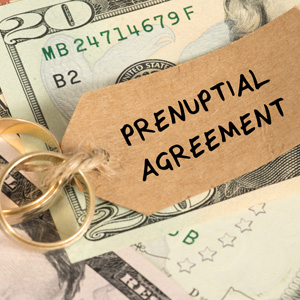
The overall factors that determine division of property are similar to those for alimony. One factor is the reason for the marital unit to disintegrate. Whenever we have adultery in a case, I know that could affect both alimony and the equitable split of their property. Other factors that the court looks at in determining an equitable split are the length of the marriage, the efforts at maintaining the marital structure, the financial situation of the parties, and the contributions to the marriage.
In many cases, the court will decide on a 50/50 split. Courts usually don’t make a lot of splits based on the debt acquired by each person, unless the debt comes from attorney’s fees or something similar. Debts accrued during the marriage are usually the responsibility of both parties.
What Happens To Property Or Assets That Were Owned Before Marriage?
Those properties are usually not part of the divorce distribution. Separate, or non-marital, property includes property owned beforehand, gifts given to that person, and inheritance. Those assets are not subject to be split during a divorce and will remain with the party who they were given to or who owns them. In a case where a house was purchased before the marriage but used marital money to pay the mortgage or upkeep for a substantial time period, the marital portion of the house can be split if it’s traceable to the marital money. Some people will add their spouse as an owner when they refinance a home, but that involves an agreement to change the status of that property. In general, a separate asset purchased before with no comingling of any marital resource for support will remain in the ownership of that one spouse.
Who Will Keep The House In A Baltimore Divorce?
In Baltimore, as in the rest of Maryland, couples are first given the chance to come to an agreement on how any common assets will be distributed. Unless the home was entirely purchased or owned by one member of the couple before they were married, the house or home will be part of the property that needs to be divided.
This is often done through mediation, during which couples will have to make compromises and decisions to reach a fair distribution. Fairness is important, not equality. Maryland does not impose or require a 50/50 separation, but it does require a “fair” one, if a judge believes an agreement, even a voluntary one, is unfair, they may change it.
If the couple cannot agree on a division, including for property such as a home, then the court will end up deciding on a division, which means it could come down to the decision of a judge. While they will listen to any relevant arguments and evidence, especially concerning the welfare of any children involved, it will invariably be up to them.
How Do Courts Handle The Division Of Debts In A Divorce?
I have encountered cases where the court is asked to designate ownership or payment of debts in a divorce. While attorney’s fees are allocated, you do see people asking for their IRS debts to be paid or for their credit card bills to be addressed. Let’s say there is a lot of money available, and someone has been egregiously irresponsible or something of that nature; that would fall under the factors regarding the reason for dissolution of marriage, which weighs into the percentage of the monetary award.
While the court might determine a 60/40 split instead of a 50/50, there’s nothing in the law that requires debts to be allocated at the time of divorce or paid off with available money. The equity in the house, the retirement accounts, and those kinds of things are split in the property award.